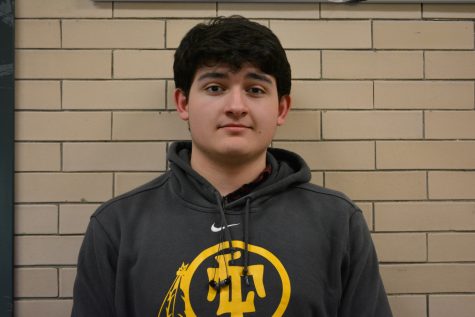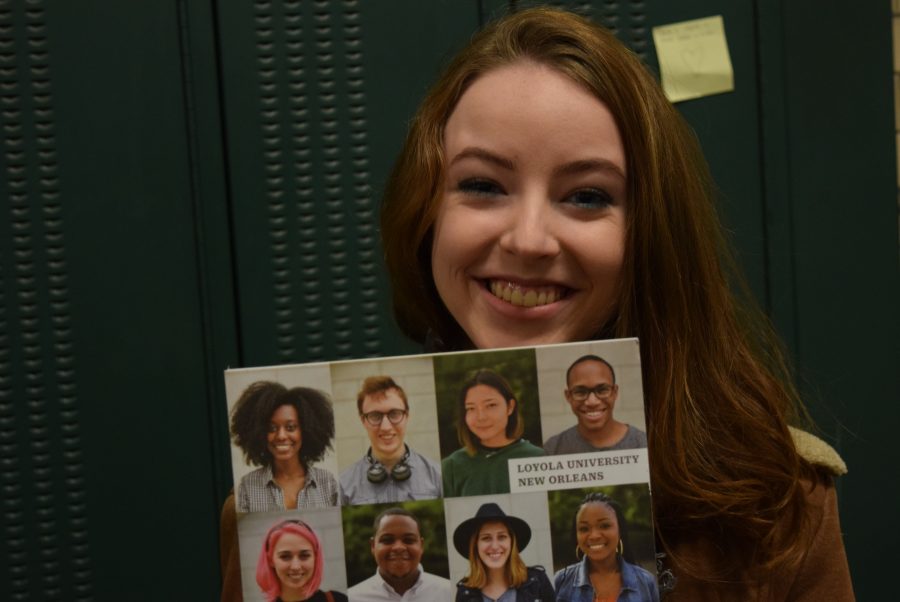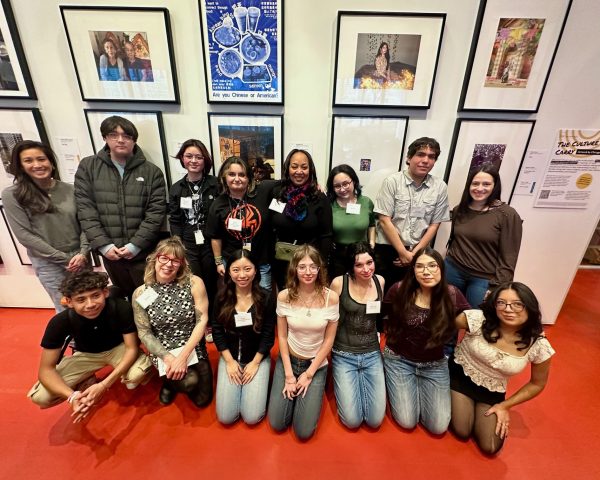Students graduate early for a head start
Mairead Collins, Div. 764, is full of glee after being accepted into Loyola University New Orleans.
When Sam Tennant realized that she had the opportunity to graduate early, she immediately started imagining what it would be like. Having been at Lane for five years already, going to college seemed so far away. Although graduating early would be a drastic change in future plans, ultimately the decision seemed to the the best for her and her future career. Tennant, Div. 753., spent about three months going back and forth between her decision but ultimately decided in February of her sophomore year.
Lane’s Academic Center (LTAC) provides students with the opportunity to graduate early. Since LTAC students have been taking high school courses since seventh grade, they are typically ahead of most other students in their grade.
Former Academic Center students who do not graduate early might choose to take a wide range of AP classes, dual credit college courses or simply more electives that will fill in the course gaps during their junior and senior years.
While that may be the case for some students, a few simply want to get a head start in their future careers. And so, they choose the path of graduating early.
“I really wanted to start a career in theatre as soon as I can,” Tennant said. “I really feel like graduating early pushes me in the right direction.”
Because theatre is such an exclusive and strenuous field, Tennant feels that it’s best to get started as early as possible.
“I’ll be able to train in college sooner and therefore get working sooner,” she said.
Tennant has been attending Lane Tech for 5 years, beginning as a seventh grader in the Academic Center. Although she said she will miss high school and its experiences, she is excited for the future ahead.
“I’ll miss everything about it, but I’m so grateful for the experience I have had thus far.”
Along with Tennant, current senior, Mandy Wilkie, Div. 775, has also made the decision to graduate a year early. A former LTAC student, Wilkie thinks that there are many academic benefits to graduating early.
“I have been working very hard for five years and all my hard work has paid off.,” Wilkie said. “I can’t wait for college and all it has to offer.”
She spoke about her potential future career path after college.
“I hope to have a career as a mathematician, or something along those lines. I have always excelled in math,” Wilkie said. She started Honors Algebra in seventh grade and by the end of sophomore year, she completed her math course requirements. Although her requirements were fulfilled, Wilkie has continued with a math class and is now in AP Calculus AB.
Because she was so far ahead in math, as well as her other classes, Wilkie felt that the best decision for her was to graduate early.
When the choice to graduate early is made in the middle of sophomore year, the student is required to switch into a junior division.
“Changing divisions was weird at first, but I quickly bonded with a lot of the people. I gained a lot of new friends that I wouldn’t have otherwise,” Wilkie said.
While Tennant and Wilkie have plans to graduate early, Lane Tech graduate, Dominique Harris can speak from experience. Harris graduated last year, a year earlier than most of her 17-year-old friends. She now attends Central Michigan University.
Harris spoke of the benefits to graduating early.
“I feel one step ahead of the game all of the time,” Harris said. She chose to graduate early for some of the same reasons as Tennant and Wilkie.
“I really had to think of my future and how I could be benefited from getting an early start. Although I’d miss my friends and family, I had to think of my best interest,” Harris said. Since graduating, Harris has had an exceptional college experience thus far.
Beginning her college experience early, Harris felt nervous and unsure as she walked on campus her first day. But Harris quickly felt a sense of belonging.
“I was more accepted and seen as way more intelligent than the normal college student,” Harris said.
Your donations directly fund the Lane Tech student journalism program—covering essential costs like website hosting and technology not supported by our school or district. Your generosity empowers our student reporters to investigate, write, and publish impactful stories that matter to our school community.
This website is more than a publishing platform—it's an archive, a research tool, and a source of truth. Every dollar helps us preserve and grow this resource so future students can learn from and build on the work being done today.
Thank you for supporting the next generation of journalists at Lane Tech College Prep!

Hi! My name is Jadyn Dubach and I have been a part of the Warrior for one year. I am very excited and passionate about the newspaper. Here at Lane, I have...

James Coyne started Journalism in his sophomore year and became the Photo Editor his senior year. He has focused most of his work towards the feature...




